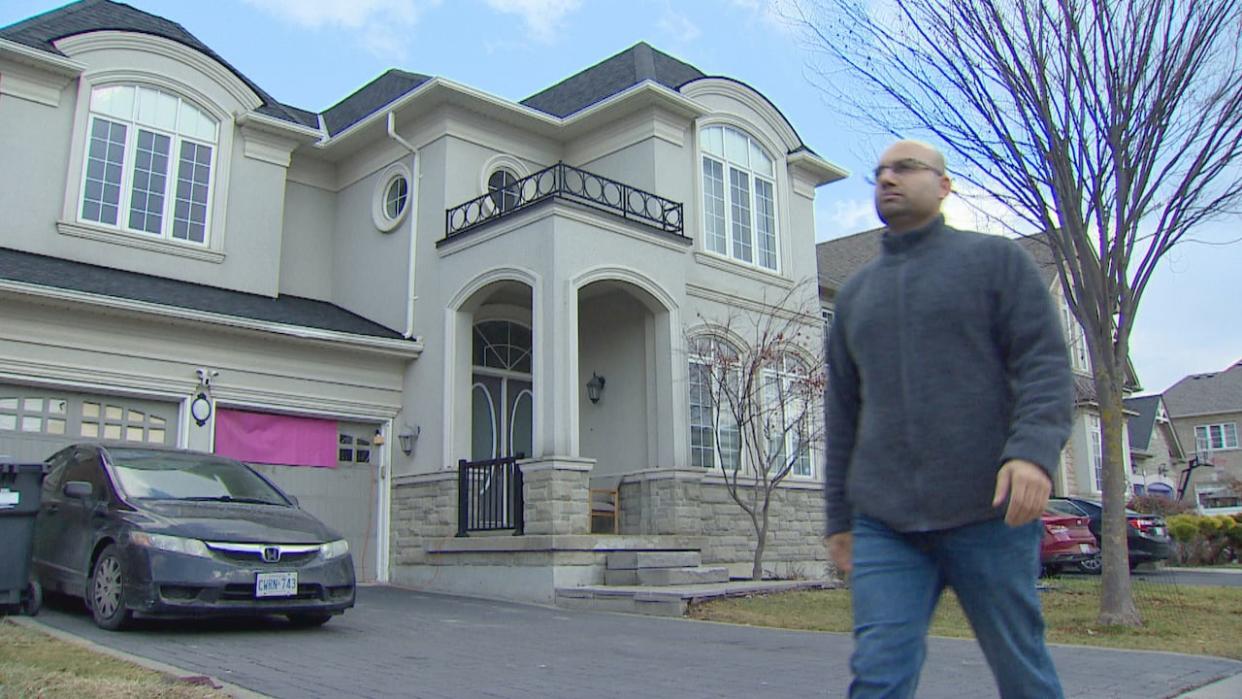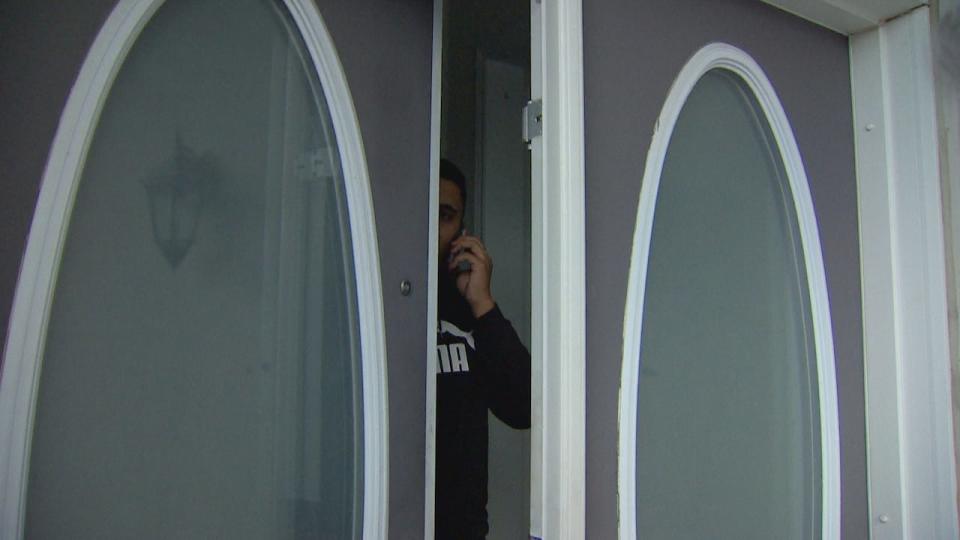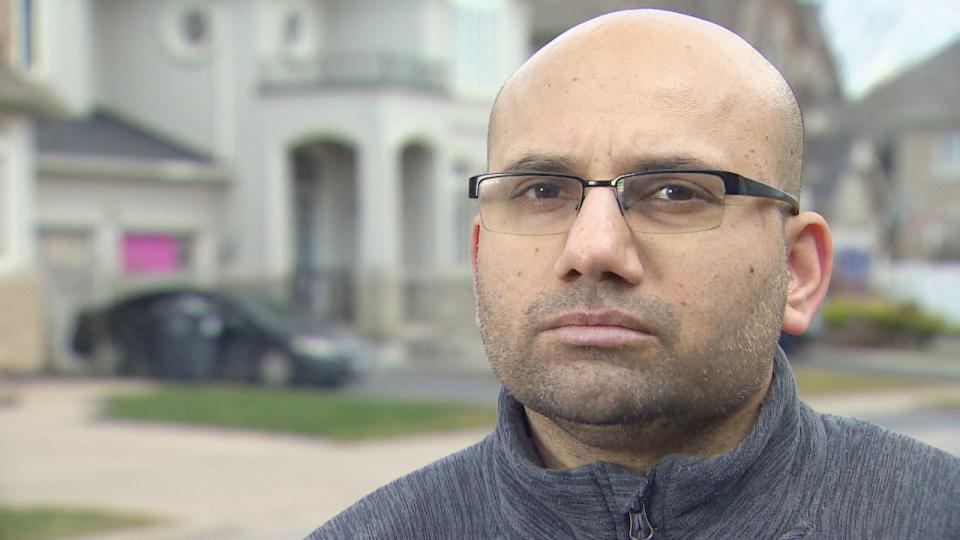A Brampton tenant has racked up $30K in unpaid rent and still won't leave, landlord says

A Brampton landlord says he's out at least $30,000 — so far — because the tenant at one of his properties has refused to pay rent or move out.
Rajan Kanwar says he's been trying to get the tenant out since May and recover some of his losses, but delays at Ontario's Landlord and Tenant Board have left him with mounting debts and emotionally drained.
"It's upsetting, it's saddening, it's a lot of different emotions," Kanwar told CBC Toronto. "I would like my property back."
Since May, the tenant has paid little or no rent, Kanwar says, leaving him to pay the $9,500-per-month mortgage on the property. That's on top of a $7,500-per-month mortgage on his own family home.

The tenant on Scotchmere Crescent hasn't paid full rent since last spring, according to landlord Rajan Kanwar. The tenant would not speak with with CBC Toronto. His legal representative has not responded to calls. (Tina MacKenzie/CBC)
He says the amount he's owed includes both unpaid rent and utilities.
The tenant refused to speak with CBC Toronto. His legal representative has not yet responded to requests for comment.
Ordered out
Kanwar, an IT manager, says he's filed two applications with the LTB since last June.
One application, called an N11, asks for an eviction order on the grounds that the tenant has agreed to go. The LTB ruled on that last month, setting the tenant's departure date for February 2024. But Kanwar says the tenant has agreed to go in the past, then changed his mind.
The other application, for an eviction order based on non-payment of rent, has yet to be heard, even though he filed it seven months ago. That second application, called an N4, would order the tenant to repay Kanwar.
Kanwar says he has no reason to believe the LTB order will be respected — or that he'll ever see any of the defaulted rent.

Kanwar says he's emotionally drained by the controversy. He says he's currently paying $17,000 a month for two mortgages, while receiving no income from his rental property. (Tina MacKenzie/CBC)
The LTB said in a statement to CBC Toronto that it ordered the tenant evicted based on the N11 application. But it has not responded to requests for comment on the second application.
The board's most recent numbers show a backlog of 53,000 cases in May 2023 — up from about 35,000 in March 2021. Last month, the board told CBC Toronto it's made improvements to its systems since the province's ombudsman published a scathing investigation on dysfunction at the board in May.
It's a problem Elaine Page, a paralegal who specializes in landlord-tenant issues, says she's seeing more and more of.
"Landlords are getting so frustrated," she said. "It's taking months and months and months to get to the board. It's just, 'I've got to stop the bleeding; I'm going to lose my house, I'm going to lose my own personal property... Just get them out.'"
No full rent payments since May, landlord says
Kanwar's problems began in December 2021, when he rented out the four-bedroom detached house on Scotchmere Crescent in Brampton for $4,500 a month.
At first, he says, all was well. The tenant paid his rent and utilities within a reasonable time frame.
But eventually, the rent payments became intermittent, Kanwar says. The tenant also began defaulting on some utility payments, meaning Kanwar had to cover them.
Finally, in May 2023, the tenant explained to Kanwar that he just couldn't afford the house anymore. According to Kanwar, that's when he started paying, at best, partial rent.
It was at that point, Kanwar says, that the tenant signed the N11 application, agreeing to move out voluntarily within a couple of months. At the same time, Kanwar filed the N4 application on the grounds that no rent was being paid.
The tenant later told the LTB he had not signed the N11 form and that his signature had been forged.

Paralegal Elaine Page, who specializes in landlord tenant law, suggests landlords sit down with delinquent tenants and try to find some common ground. (CBC)
The board ruled in favour of Kanwar and ordered the tenant out by the end of next February.
But the N4 hearing was postponed, Kanwar says, when the tenant's legal representative showed up for the hearing with 400 pages of documents — too much for the adjudicator to immediately process. No new date has been set yet.
The LTB has not yet responded to requests from CBC Toronto for an update.
Until the hearing happens, there's no word on any rent reimbursement.
'I just want them to pay what's due to me'
Page suggests that landlords who find themselves in situations like Kanwar's sit down with their tenants and level with them. She says tenants will sometimes agree to leave voluntarily if they understand the financial burden they're putting on the landlord.
Failing that, she suggests landlords get legal advice.
"We've got a lot of landlords that are self-representing who make a lot of mistakes and their cases get tossed," Page said. "I know people don't want to spend money on legal advice, but it's money worth spending."
Meanwhile, Kanwar says he's at his wits' end.
"I just want them to pay what's due to me," he said.
But even if the LTB does eventually order repayment, Page says the chances of that actually happening are "slim to none."

